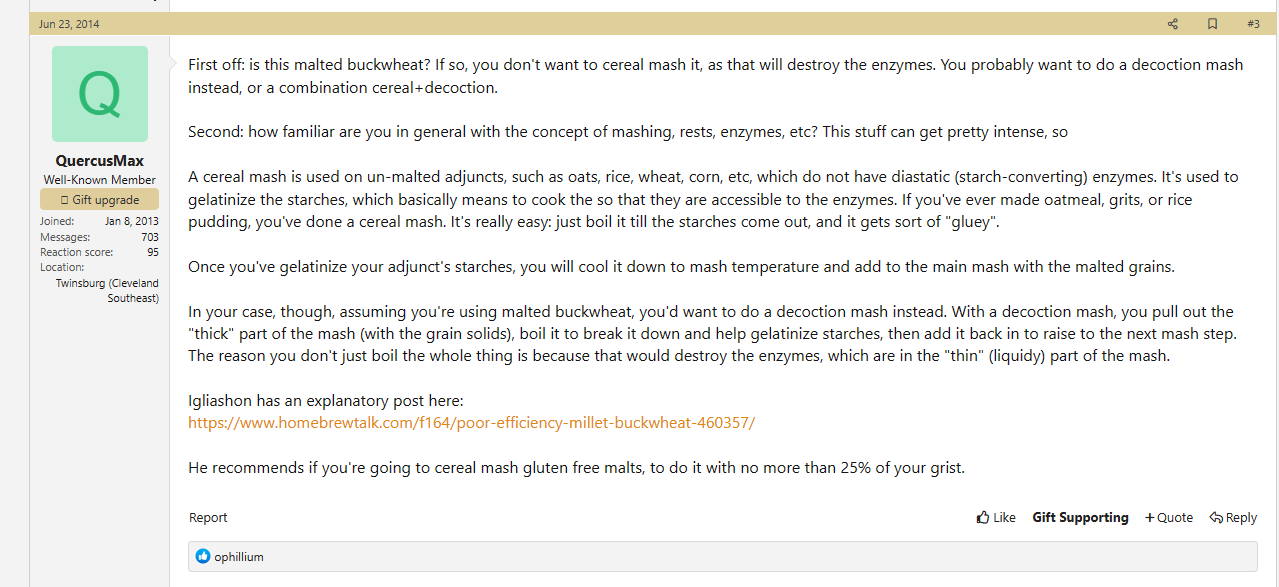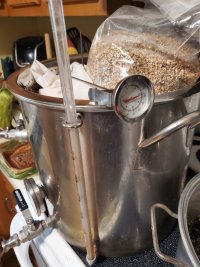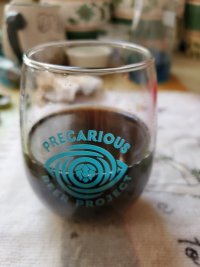- Joined
- Sep 6, 2021
- Messages
- 329
- Reaction score
- 1,379
This beer, Tellen Du (Black Harp in Breton), is a buckwheat lager that's brewed by Brasserie Lancelot. I drank it in Paris 22 years ago and loved it.
In my infinite (lack of) wisdom, I've decided to try reverse-engineering it. I have malted buckwheat (4 lbs), and have been able to ascertain that roasted barley is another important component of the beer, but that's it.
This is the breakdown I'm thinking :
2 lbs malted buckwheat
4 lbs Maris Otter
.25 lbs roasted barley
.25 lbs Gambrinus Honey Malt
.6 oz Magnum @ 60
.75 oz EKG @ 15
Novalager yeast
If anyone is sufficiently interested in this project to comment, I would appreciate it.
Thanks.
In my infinite (lack of) wisdom, I've decided to try reverse-engineering it. I have malted buckwheat (4 lbs), and have been able to ascertain that roasted barley is another important component of the beer, but that's it.
This is the breakdown I'm thinking :
2 lbs malted buckwheat
4 lbs Maris Otter
.25 lbs roasted barley
.25 lbs Gambrinus Honey Malt
.6 oz Magnum @ 60
.75 oz EKG @ 15
Novalager yeast
If anyone is sufficiently interested in this project to comment, I would appreciate it.
Thanks.






